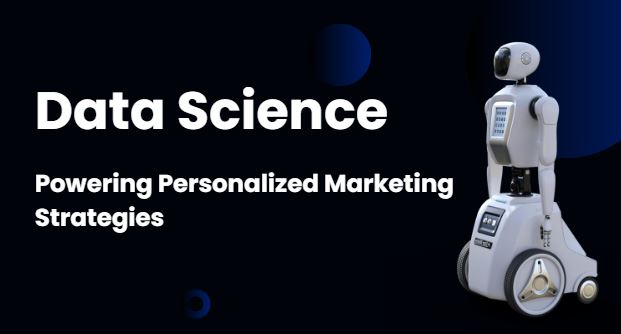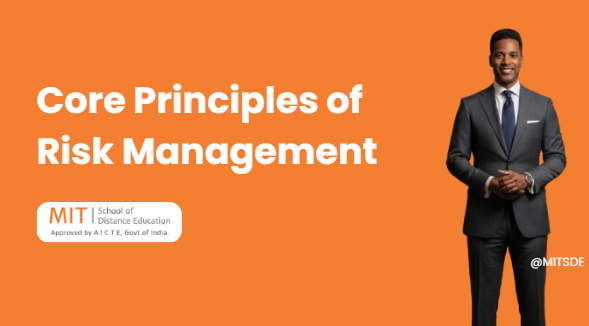
In today’s digital landscape, data science has revolutionized the way brands create and implement personalized marketing strategies. The ability to leverage vast amounts of consumer data allows businesses to offer tailored experiences that resonate with individual preferences and behaviors. This transformation in marketing is powered by data analytics, machine learning, and advanced data science techniques.
The Role of Data Science in Personalized Marketing
At its core, data science enables companies to understand their customers better by analyzing behavioral patterns, purchase histories, and even real-time interactions. This deep understanding of customer data allows businesses to segment audiences more effectively and develop hyper-targeted marketing campaigns.
Here’s how data science drives personalization in marketing:
Customer Segmentation
Traditionally, marketers segment customers based on basic demographics like age or location. However, with the advent of data science, brands can now incorporate psychographics, online behavior, and purchase history into segmentation models. Machine learning algorithms analyze these patterns to group customers into distinct segments, allowing for more tailored content and offers.
71% of consumers expect personalized interactions from companies.
Customers today don’t just like personalization — they expect tailored experiences across channels.
Predictive Analytics for Customer Behavior
Predictive analytics, a key component of data science, helps marketers anticipate customer needs and preferences. By analyzing past data, businesses can predict future behavior, such as what products a customer is likely to purchase or when they might churn. This proactive approach allows brands to engage customers with personalized offers or messages at the right time.
Dynamic Content Personalization
Data science enables marketers to deliver dynamic content that adapts to the individual in real-time. Using algorithms that analyze user data, brands can modify website layouts, emails, or ads based on user behavior, preferences, or past interactions. For example, if a customer frequently browses tech products, they will be shown tech-related offers and content.
Recommendation Engines
Personalized recommendation systems, like those used by Netflix and Amazon, are powered by data science and machine learning. These systems analyze user behavior and preferences to suggest products or content that align with individual tastes. By providing relevant recommendations, businesses enhance the customer experience, which boosts engagement and conversion rates.
Sentiment Analysis for Tailored Messaging
Data science uses natural language processing (NLP) to conduct sentiment analysis, which helps brands understand the emotional tone behind customer feedback, social media posts, and reviews. By analyzing this data, marketers can adjust their messaging to better match customer sentiments, leading to more effective communication strategies.
Optimized Marketing Channels
Data science helps marketers determine the best channels to reach specific customer segments. By analyzing engagement data across platforms like social media, email, and mobile, brands can optimize their campaigns to focus on the channels that yield the highest return on investment (ROI) for each audience.
49% of businesses say organic search delivers the best ROI of all marketing channels in current performance reporting — another example of how cross-channel data analysis influences strategy.
A/B Testing for Continuous Improvement
Marketers can also use data science to run sophisticated A/B tests, allowing them to experiment with different versions of a campaign and measure which performs better. By continually testing and analyzing results, companies can refine their marketing strategies for maximum impact.
The Benefits of Personalized Marketing Using Data Science
- Increased Conversion Rates: Personalizing marketing campaigns leads to more relevant offers and messages, increasing the likelihood of conversion.
- Enhanced Customer Loyalty: Personalized experiences make customers feel valued, encouraging brand loyalty and repeat purchases.
- Improved Customer Experience: Personalization makes interactions more enjoyable, which translates to better overall customer satisfaction.
- Higher ROI: By targeting the right audience with the right message at the right time, businesses can achieve a higher return on their marketing investments.
Real-World Examples of Data Science in Personalized Marketing
Amazon’s Recommendation Engine
Amazon’s recommendation engine is one of the most well-known examples of data science in action. By analyzing browsing history, purchase patterns, and even what other users have bought, Amazon provides customers with personalized product recommendations that drive sales.
Spotify’s Customized Playlists
Spotify leverages data science and machine learning to analyze users’ listening habits and generate personalized playlists like “Discover Weekly.” This keeps users engaged and encourages continued platform usage.
Coca-Cola’s Targeted Marketing
Coca-Cola uses data science to segment audiences and deliver targeted marketing campaigns based on factors like location, social media engagement, and purchase behavior. This allows them to create more relevant and impactful marketing efforts.
How MIT School of Distance Education (MITSDE) Helps You Master Data Science
As personalized marketing continues to grow in importance, businesses will need skilled data scientists to manage, analyze, and interpret consumer data. If you’re looking to build a career in data science and contribute to the future of marketing, MIT School of Distance Education (MITSDE) offers one of the best Data Science courses that equips students with essential skills like machine learning, data visualization, and predictive analytics.
MITSDE’s Data Science course is designed to provide comprehensive knowledge, covering both foundational concepts and advanced tools used in the field. Through its industry-relevant curriculum, MITSDE ensures students are well-prepared to drive innovation in data-powered personalized marketing strategies.
Conclusion
Data science has undeniably transformed personalized marketing, allowing brands to connect with customers on a deeper level. By utilizing customer data effectively, businesses can create more engaging, relevant, and successful marketing campaigns. For those eager to become part of this exciting field, the Data Science program at MIT School of Distance Education provides the perfect platform to gain the skills and knowledge required to excel in data-driven marketing roles.



